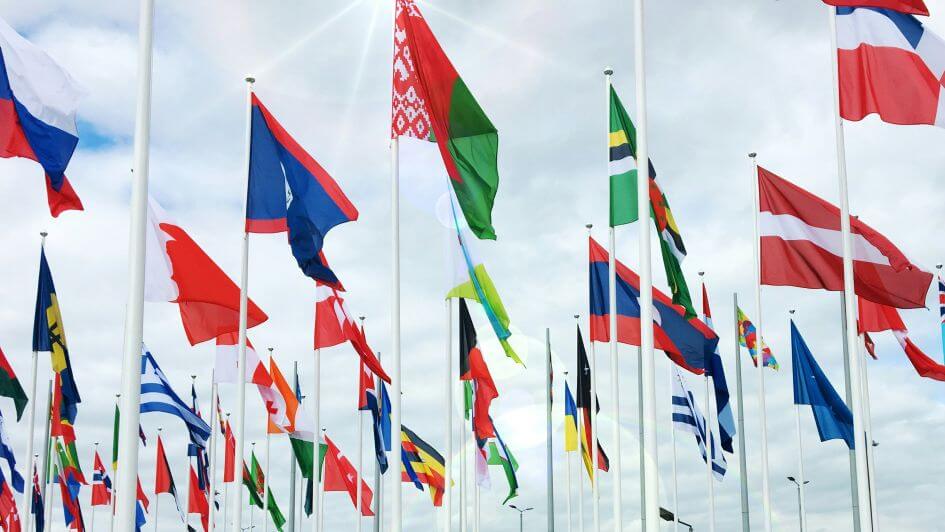To achieve just energy transition and energy access goals, collaboration among various partners is essential. These collaborations can take different formats. For instance, the public and private sectors in developing economies need to collaborate to design policies that incentivize investment. Conversely, different public sector agencies with a stake in energy transition need to plan together to design harmonious policies and regulations. Collaboration among sovereign nations is also essential to achieve a just energy transition.
However, these collaborations are influenced by current socio-economic and geopolitical conditions. We predict that these prevailing conditions will continue to affect how stakeholders in the energy ecosystem collaborate. Looking ahead, we foresee two distinct trends in energy sector collaboration. On one hand, there will be a strengthening of regional collaboration, fostered by new partnership models. On the other hand, global collaboration is likely to encounter challenges due to competition among countries and protectionist policies, which could hinder the transition to clean energy.
Stakeholders are innovating to enhance collaboration at local and regional levels. A notable example is Uganda’s inter-ministerial platforms, which facilitate joint planning among different agencies. Here, the Ministry of Energy and the Ministry of Agriculture are collaborating on the use of Distributed Renewable Energy (DRE) equipment in agriculture. Another interesting partnership, in Uganda, is the Utility 2.0 project by Power for All, which involves cooperation between a utility company and several DRE companies. In Africa, several pan-African platforms have emerged recently, such as the African Food Systems Transformation Initiative (AFSTI). This initiative focuses on improving nutrition and food security by uniting stakeholders from West and Central African countries. We foresee a strengthening of local-level collaboration in the coming years, along with the continued development of innovative models to bridge gaps between different actors in the energy ecosystem.
Despite witnessing increasingly effective collaboration models at regional and national levels, global collaboration, particularly between countries in the Global North and South, remains disappointingly weak. The International Energy Agency (IEA) highlights that this lack of global cooperation is hindering the deployment of clean energy technologies. Their report also notes modest progress in 2023 in expanding financial and technical assistance, noting it falls significantly short of what is needed to achieve just energy transition goals.
This shortfall in global collaboration is evident in numerous ways. Developed countries are implementing protectionist policies to bolster their local solar equipment manufacturing, which, according to a research paper, could raise solar module prices by 25% by 2030.
The international landscape for renewable energy adoption and a just transition is further complicated by two significant negative trends impacting the Global South: issues with standards and policy barriers that prevent African countries from accessing finance through Carbon Markets. Standards bodies, often dominated by more developed nations, set technical benchmarks that can inadvertently favor manufacturers from these countries, creating an uneven playing field. Additionally, the practice of dumping, where countries export surplus goods at prices lower than the home market, further skews the market. This can lead to the influx of low-quality, inexpensive solar equipment in developing markets, undermining local industries and leading to a proliferation of products that fail to meet necessary quality and efficiency standards. These dynamics not only hinder the growth of a robust renewable energy sector in less developed countries but also pose a significant barrier to the global just energy transition, as they prevent the establishment of a universally reliable and sustainable renewable energy infrastructure.
Secondly, African countries face substantial policy barriers in unlocking finance from Carbon Markets, an important component for funding renewable energy projects and ensuring a just transition. The existing global policy framework often places disproportionate procedural and bureaucratic burdens on these countries. This includes stringent verification processes and complex requirements for demonstrating emission reductions, which can be particularly challenging for nations with limited resources and technical expertise. As a result, African countries, despite their enormous potential for renewable energy development and significant need for sustainable economic growth, find themselves at a disadvantage. This not only impedes their ability to contribute to global emission reduction efforts but also exacerbates existing inequalities in the distribution of climate finance. The failure to address these policy barriers not only undermines the spirit of international cooperation needed to combat climate change but also hampers the global pursuit of equitable and sustainable development.
However, there are glimmers of hope. At COP28, 134 countries committed to incorporating food and agriculture into their climate plans, showcasing a rare instance of international unity. Yet, in the current geopolitical climate, it appears that over 2024 such collaborative efforts will increasingly become exceptions to the norm.
